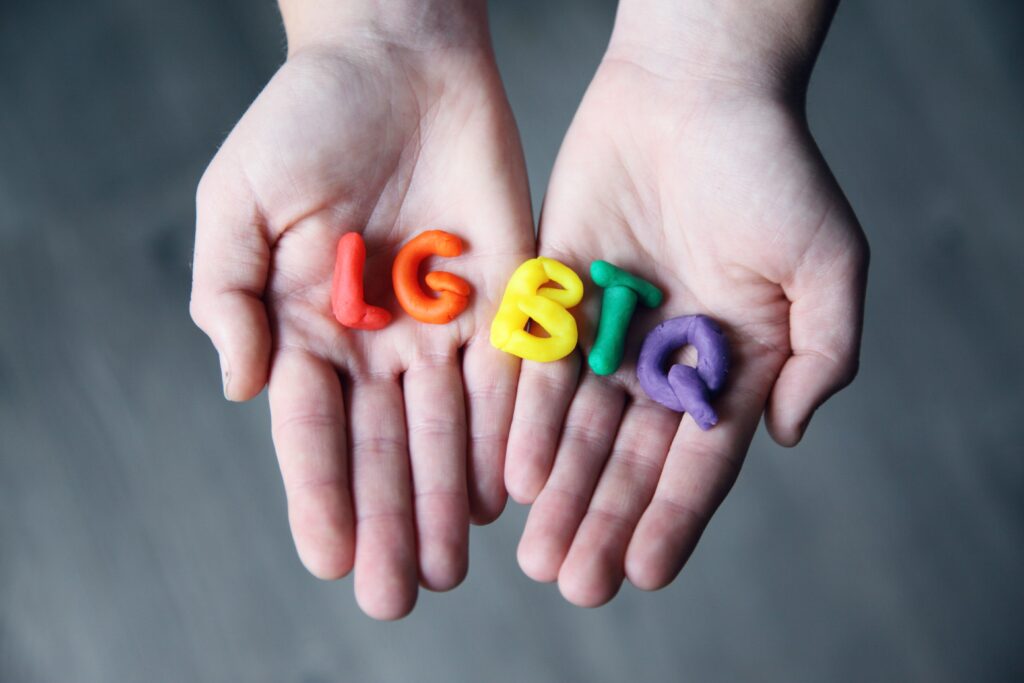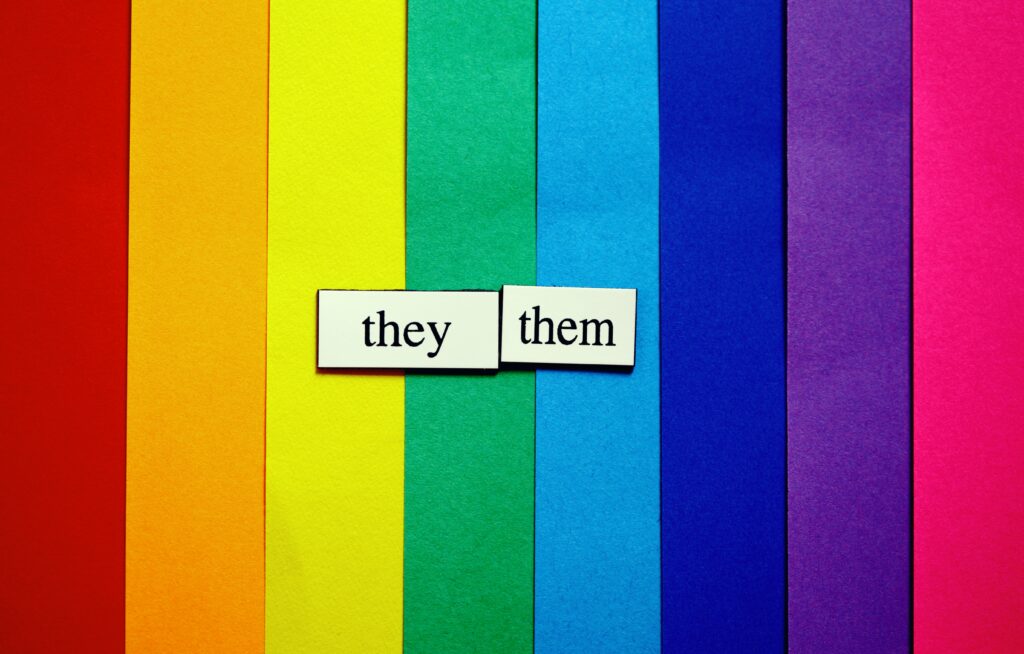5 easy tips on how to be more inclusive using words
Language is evolving to reflect our society’s long overdue changes towards diversity and inclusion. Are you keeping up? Here’s a quick how-to.
A quote by Sir John French states, “Words are the leaves of the tree of language, of which, if some fall away, a new succession takes their place.” With this in mind, think about the last time you called your refrigerator an icebox or a car an automobile? We should not be afraid to change language that no longer applies to us, no longer represents us.
For those who think that the way we speak can’t or is too difficult to change, I offer you these terms, some of which have only become part of our vocabulary over the last 20 years or so: laptop, cell (phone), texting, influencer, the web, tablet. Remember when the word tablet meant a pill or the ten commandments? If so, then it shouldn’t be so tough to use they as a singular pronoun.
So let’s talk about gender neutrality and language. I’m a gay man. I identify as male and use he, him, his pronouns. Sometimes a friend will call me “girl” or “queen.” I get where that’s coming from and I don’t mind it. But for some, gender identity and gendered language is something that is an issue and a challenge.
How would it be to communicate in a way that would treat everyone in a more inclusive way? We can start off by changing some of the language we use. It may take some time, some getting used to, but we can do it. As Albert Einstein once said, “The measure of intelligence is the ability to change.”
In today’s society, where we are much more aware of folx who identify in a more gender expansive way, gendered language is becoming passé. We can make conversations more inclusive and respectful by following a few easy “rules.”

Even when a person is not in the room, use their correct pronouns when referring to them.
Obviously you should use the proper pronouns for those people you know when referring to them in conversation. If you can’t remember someone’s pronouns, aren’t sure of them or just don’t know them, you can simply use their name instead. You can also defer to using “they.” It’s gender neutral, non-offensive and (yes!) grammatically correct. If someone informs you that you’ve used the wrong pronoun, simply apologize (Oops, sorry), move on, and try to get it right the next time.
Refrain from descriptors that use specifically feminine or masculine forms, such as housewife, maid, and stewardess or policeman, waiter, and freshman.
Obviously if you are talking about a specific person that you know and a gendered descriptor applies, then by all means use it. For example, you wouldn’t likely call your parents anything besides mom and dad. But if you’re speaking in more general terms, particularly about a group, then why not try using a gender-neutral substitute.
Some may be a challenge, but I’m sure we can do it. With a little practice and some patience you’ll be talking about how during the pandemic many people became homemakers; how difficult it is to find a good housekeeper; how helpful flight attendants can be; how police officers need to get more diversity training; how servers at restaurants aren’t paid enough; how your best friend used to teach first year college students. These are examples of terms that can be problematic for those in the TGNCNB (Transgender Gender Non-Conforming Non-Binary) community, as well as for those who identify within the binary of women and men.
Words and expressions that are more gender neutral and inclusive, particularly when talking in a group:
Use “Hi everyone” instead of “Hi guys.”
Use “Welcome everybody” instead of “Welcome ladies and gentlemen.”
Use “spouse” instead of “wife/husband.”
Use “humankind” or “people” instead of “mankind.”
Use “parent” instead of “mother/father.”
Use “staffing the table” instead of “manning the table.”
Use “machine-made” or “artificial” instead of “man-made.”
Help those around you adapt by reframing language or modeling better behavior.
Just as cursing and racist expressions can be inappropriate, exclusive and gendered language can be too. It is important to offer clarity to someone who has made a mistake, however it is equally important to do this in an appropriate way. You don’t want to embarrass someone or call them out, instead perhaps speak to them privately or rephrase what they have said in a more appropriate way. For example, if someone said that “they need 2 volunteers to man the cookie table at the bake sale,” you could respond by saying, “Ok, I’ll find 2 volunteers to staff that table.” Sometimes hearing the neutral word can help a person make it part of their own mental vocabulary.
Gendered language can be harmful to all of us.
Lots of folx who are not non-binary are uncomfortable with gendered terms, as they can often make people feel unseen or stereotyped. These terms can also be completely inaccurate in describing the people in question. For example, saying “Did you hear, the mailmen are on strike,” excludes those involved who do not identify as male. Or “All the housewives got together to make the food for the block party,” which only includes those who are specifically female (and married). Using gender-neutral language is a more positive and inclusive approach not just to those who are non-binary, but to many others in our society as well.
Can the world learn to communicate more inclusively? I would certainly like to think so. As best-selling author of “Combat in the Erogenous Zone” Ingrid Bengis once said, “For me, words are a form of action, capable of influencing change.” And if the words you are reading right now help change the thinking of just one person, I will be one happy camper. Such is the way of change.






